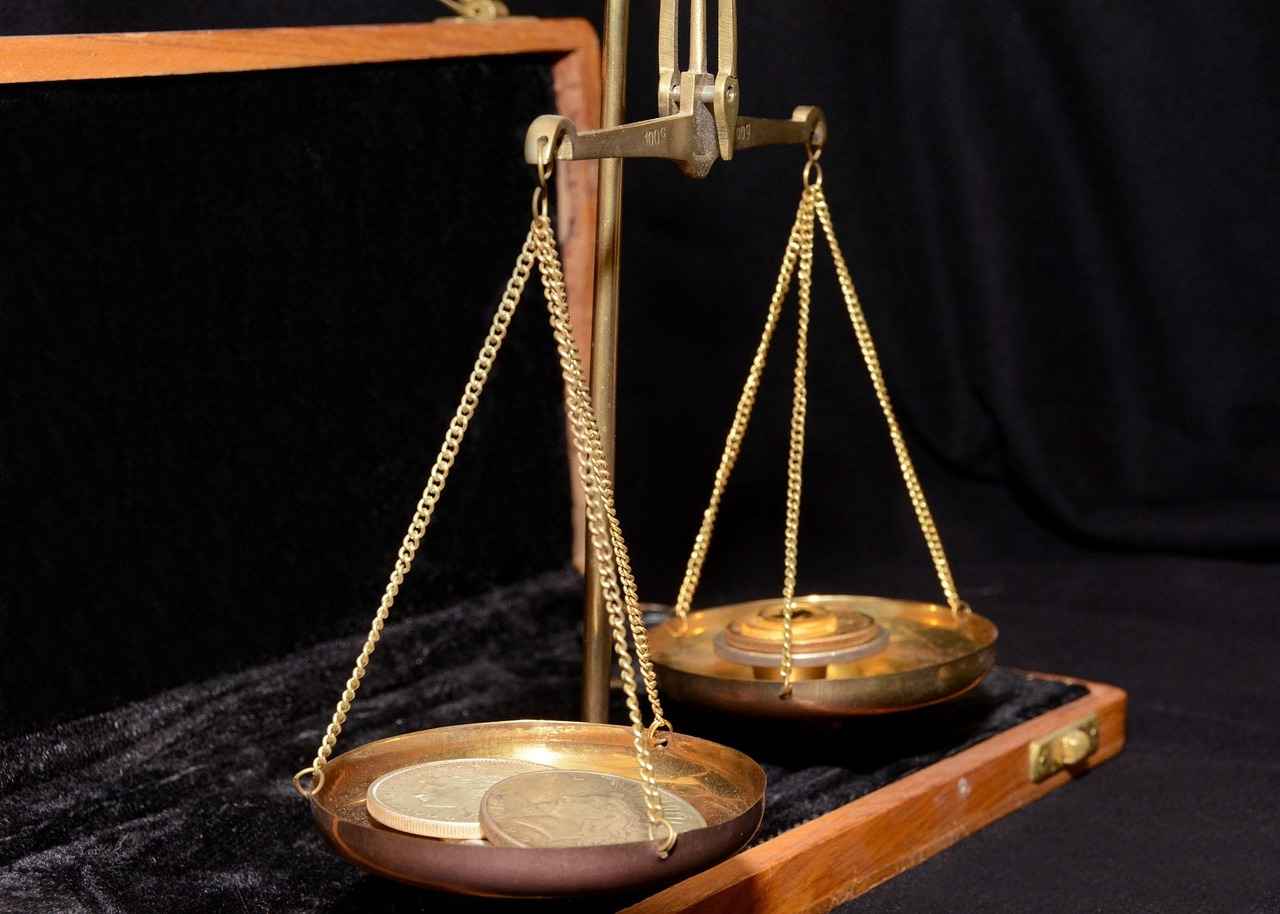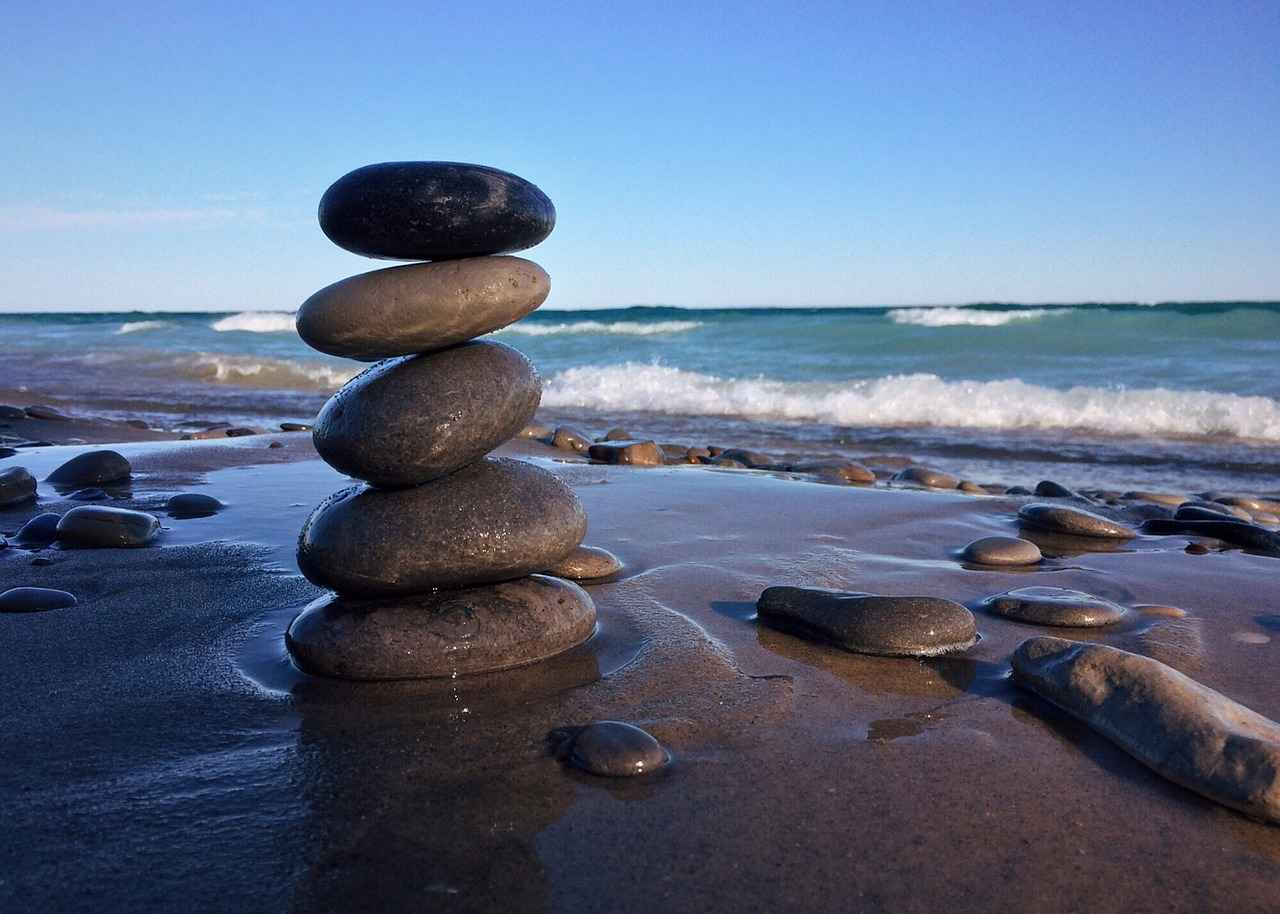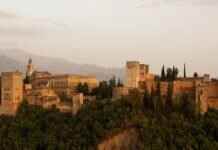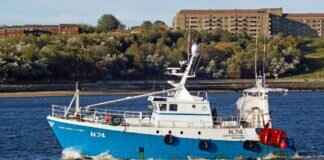The New Balance 997 sneakers are more than just a footwear choice; they are a nostalgic trip back to the vibrant 90s. This article delves into the rich history, distinctive design features, and profound cultural significance of these iconic sneakers, as well as their resurgence in today’s fashion landscape.
The History of New Balance 997 Sneakers
Launched in the early 1990s, the New Balance 997 was a groundbreaking model that combined performance with style. Initially designed as a running shoe, it quickly captured the attention of sneaker enthusiasts and casual wearers alike. Over the years, the brand has evolved, yet the core essence of the 997 remains intact, symbolizing quality and innovation.
Design Features of New Balance 997
- Material Quality and Craftsmanship: The 997 is celebrated for its exceptional craftsmanship, utilizing premium materials that ensure both durability and aesthetic appeal.
- Suede and Mesh Combinations: The thoughtful blend of suede and mesh not only enhances the sneaker’s style but also provides comfort and breathability, making it suitable for various activities.
- Colorways and Customization Options: With a plethora of color combinations, the 997 allows wearers to express their individuality. From classic neutrals to bold hues, there’s a style for everyone.
Technological Innovations in the 997
This model incorporates advanced technologies that enhance comfort and support, setting it apart from other sneakers in the market. Features like the ENCAP midsole technology provide stability and cushioning, making the 997 perfect for both casual wear and athletic pursuits.
Cultural Impact of New Balance 997
Beyond its functional design, the 997 has become a cultural icon. Its influence spans various domains, particularly in fashion, music, and streetwear.
- Influence in Hip-Hop and Street Culture: The sneaker gained immense popularity in the 90s hip-hop scene, with artists proudly sporting them, thus cementing their place in street culture.
- Celebrity Endorsements and Collaborations: High-profile collaborations with designers and celebrities have further elevated the New Balance 997’s status, making it a coveted item among sneaker collectors.
How to Style New Balance 997 Sneakers
Styling the New Balance 997 is both fun and versatile. Whether dressing up for a casual day out or integrating them into a more formal outfit, these sneakers can be adapted to fit any occasion.
- Casual Outfits with 997 Sneakers: Pairing the 997 with jeans and a t-shirt creates a laid-back yet stylish look.
- Elevating Formal Looks with Sneakers: When styled appropriately, the 997 can complement semi-formal attire, adding a trendy twist to business-casual outfits.
Where to Buy New Balance 997 Sneakers
Finding the perfect pair of New Balance 997 sneakers can be a challenge. It’s essential to shop from reliable sources to ensure authenticity.
- Official New Balance Retailers: Purchasing from authorized retailers guarantees genuine products. Their online platforms offer a hassle-free shopping experience.
- Second-Hand Marketplaces: For those on the hunt for rare editions, second-hand marketplaces can be treasure troves, offering unique finds at competitive prices.

The History of New Balance 997 Sneakers
The New Balance 997 sneakers are more than just footwear; they are a testament to the evolution of sneaker culture. First introduced in the 1990s, these sneakers emerged as a blend of cutting-edge technology and contemporary style, appealing to both athletes and fashion enthusiasts alike. This section explores the rich history of the New Balance 997, tracing its origins and the brand’s remarkable journey through the years.
Founded in 1906, New Balance originally focused on producing arch supports and orthopedic shoes. It wasn’t until the 1970s that the brand began to gain traction in the athletic footwear market. The introduction of the 990 series marked a turning point, establishing New Balance as a serious contender in the running shoe category. By the time the 997 was launched, the brand had already built a reputation for quality and performance.
The New Balance 997 was designed as a high-performance running shoe, featuring a unique ENCAP midsole technology that provided superior cushioning and support. Its sleek silhouette and premium materials, including suede and mesh, made it a stylish option for casual wear. This combination of function and fashion quickly gained popularity among sneakerheads and casual wearers alike.
Throughout the 1990s and early 2000s, the 997 became synonymous with the rise of streetwear culture. It was embraced by various subcultures, including hip-hop and skateboarding, solidifying its status as an icon. Collaborations with designers and artists further propelled its visibility, allowing the 997 to transcend its original purpose as a performance shoe.
As trends evolved, the 997 underwent several re-releases and updates, maintaining its relevance in the ever-changing sneaker landscape. Today, it stands as a symbol of nostalgia and innovation, appealing to a new generation of sneaker enthusiasts while honoring its rich heritage.

Design Features of New Balance 997
The New Balance 997 is more than just a sneaker; it is a symbol of innovation and style that seamlessly blends performance with aesthetic appeal. This section will delve into the distinctive design features that make the 997 a standout choice for sneaker enthusiasts and casual wearers alike.
The 997 is renowned for its unique design elements, which include a combination of premium materials and cutting-edge technology. This blend not only enhances the sneaker’s visual appeal but also contributes to its overall performance.
One of the defining characteristics of the New Balance 997 is its use of high-quality materials. The upper is often crafted from a mix of suede and mesh, providing both durability and breathability. This combination ensures that wearers enjoy comfort during extended use while maintaining a stylish look.
The 997 comes in a plethora of colorways, ranging from classic neutrals to vibrant hues. This variety allows sneaker lovers to express their individual style. Additionally, customization options are available, enabling enthusiasts to create a pair that truly reflects their personality.
Beyond its visual aesthetics, the New Balance 997 incorporates advanced technology that enhances comfort and support. Features such as the ENCAP midsole provide superior cushioning and stability, making these sneakers suitable for both athletic and casual wear.
The innovative design ensures that wearers experience a snug fit without sacrificing comfort. The cushioning technology employed in the 997 is designed to absorb impact, making it ideal for daily wear.
The New Balance 997 is designed to be versatile, effortlessly transitioning from sporty to casual settings. This adaptability is a significant factor in its enduring popularity among various demographics.
In summary, the New Balance 997 stands out due to its exceptional design features, which combine premium materials with technological innovations. Whether for performance or fashion, the 997 continues to set a high standard in the sneaker market.
Material Quality and Craftsmanship
play a pivotal role in the design and appeal of the New Balance 997 sneakers. The 997 is not just a shoe; it is a testament to superior craftsmanship, combining durability with a visually striking aesthetic. This section delves into the meticulous attention to detail and the high-quality materials that define this iconic sneaker.
The New Balance 997 features a blend of premium materials that enhance both its performance and style. One of the standout aspects of the 997 is its use of suede and mesh in its construction. These materials are carefully selected to ensure that the sneaker not only looks great but also offers exceptional comfort and breathability. The suede provides a luxurious feel, while the mesh allows for optimal airflow, keeping your feet cool during wear.
Moreover, the craftsmanship involved in creating the 997 is evident in the way these materials are assembled. Each pair is produced with precision, ensuring that every stitch is in place, contributing to the sneaker’s overall durability. This attention to detail means that the 997 can withstand daily wear while maintaining its shape and style.
In addition to the quality of materials, the colorways available for the 997 also play a significant role in its appeal. From classic neutrals to bold, vibrant hues, the variety allows sneaker enthusiasts to express their personal style. The ability to customize these sneakers further enhances their desirability, making them a staple in many wardrobes.
Overall, the exceptional craftsmanship and high-quality materials used in the New Balance 997 not only ensure its longevity but also contribute to its status as a fashion icon. Whether you are a sneakerhead or simply appreciate stylish footwear, the 997 stands out as a prime example of what dedicated craftsmanship can achieve.
Suede and Mesh Combinations
The New Balance 997 sneakers are celebrated not only for their iconic style but also for their exceptional performance attributes. One of the key features that set these sneakers apart is the innovative combination of suede and mesh materials. This blend plays a critical role in ensuring both comfort and breathability, making the 997 a popular choice among sneaker enthusiasts and athletes alike.
The use of suede in the upper construction of the 997 provides a luxurious feel while also enhancing durability. Suede is known for its soft texture, which contributes to the overall comfort of the sneaker. It molds to the shape of the foot over time, offering a personalized fit that is hard to replicate with synthetic materials. This level of comfort is particularly beneficial for those who wear their sneakers for extended periods, whether for casual outings or athletic endeavors.
On the other hand, the incorporation of mesh adds an essential element of breathability. Mesh allows for air circulation, which helps to keep the feet cool and dry, especially during physical activities. This is crucial for maintaining foot health and preventing discomfort caused by excessive sweating. The combination of suede and mesh creates a perfect balance, where the sturdiness of suede meets the lightweight, airy nature of mesh.
Furthermore, this material pairing enhances the overall performance of the New Balance 997. The flexibility provided by the mesh allows for natural foot movement, while the suede offers the necessary support. Together, they create a sneaker that not only looks good but also performs exceptionally well in various settings.
In summary, the thoughtful integration of suede and mesh in the New Balance 997 sneakers significantly elevates their functionality. By offering both comfort and breathability, these materials ensure that wearers can enjoy their sneakers for any occasion, be it a casual day out or an intense workout session.
Colorways and Customization Options
The New Balance 997 sneakers are not just a symbol of comfort and style; they also offer a unique opportunity for personal expression through their diverse range of colorways and customization options. This section delves into the most popular combinations and how sneaker enthusiasts can personalize their pairs to reflect their individual style.
The variety of colorways available for the 997 is truly impressive, catering to different tastes and preferences. Some of the most sought-after combinations include:
- Classic Grey – A timeless choice that pairs well with almost any outfit.
- Bold Red – Perfect for those who want to make a statement and stand out.
- Ocean Blue – A refreshing hue that adds a pop of color without being overwhelming.
- Earthy Tones – These colors, such as olive green and brown, resonate with nature lovers and offer a subtle, understated look.
In addition to these popular color combinations, New Balance offers various customization options. Customers can choose from different materials, such as premium suede or breathable mesh, to create a unique pair that suits their needs. The customization process often includes:
- Personalized Colors – Select your own color palette for different sections of the shoe.
- Initials or Names – Add a personal touch by embroidering your initials or name on the sneaker.
- Unique Patterns – Choose from various patterns to give your sneakers a distinctive look.
These options not only enhance the aesthetic appeal of the sneakers but also make them a true reflection of the wearer’s personality. The ability to customize the New Balance 997 allows sneaker enthusiasts to create a pair that stands out in a crowd, making each sneaker a personal statement.
Overall, the New Balance 997’s colorways and customization options are a testament to the brand’s commitment to creativity and individuality, ensuring that each sneaker is as unique as the person wearing it.
Technological Innovations in the 997
The New Balance 997 sneakers are not just a fashion statement; they are a testament to the brand’s commitment to innovation and performance. At the heart of these iconic shoes are several technological advancements that enhance both comfort and support, making them a favorite among sneaker enthusiasts and athletes alike.
- ENCAP Midsole Technology: One of the standout features of the 997 is the use of ENCAP midsole technology. This combines soft foam with a durable polyurethane rim, providing exceptional cushioning while ensuring stability and support during various activities.
- ABZORB Cushioning: The incorporation of ABZORB technology in the midsole offers superior shock absorption. This feature is particularly beneficial for those who spend long hours on their feet, as it minimizes the impact on joints and enhances overall comfort.
- Breathable Mesh Upper: The upper part of the sneaker is crafted from a blend of premium suede and breathable mesh. This combination not only contributes to the shoe’s aesthetic appeal but also ensures optimal airflow, keeping feet cool and dry even during intense workouts.
- Reflective Detailing: For added safety during low-light conditions, the 997 features reflective detailing. This small yet significant innovation enhances visibility, making these sneakers suitable for evening runs or walks.
These technological innovations make the New Balance 997 not just a stylish choice but also a practical one for those seeking performance and comfort in their footwear. With a design that seamlessly blends form and function, the 997 continues to stand out in the crowded sneaker market, appealing to both athletes and fashion-conscious individuals.

Cultural Impact of New Balance 997
The New Balance 997 has evolved far beyond its initial purpose as a performance sneaker; it has emerged as a cultural icon that resonates across various domains, including fashion, music, and streetwear. This section delves into the profound influence of the 997 on contemporary culture.
Initially launched in the 1990s, the 997 quickly gained traction in the hip-hop scene, becoming a staple among artists and influencers. Renowned figures in music began to sport these sneakers, contributing to their status as a symbol of urban style. The sneaker’s unique blend of comfort and aesthetic appeal made it a favorite for those looking to express their individuality.
- Fashion Statements: The 997 has been embraced by fashion designers and brands, often appearing in runway shows and street style blogs. Its versatility allows it to be paired with both casual and high-fashion outfits, making it a go-to choice for fashion enthusiasts.
- Music Influence: Artists across genres, particularly in hip-hop and R&B, have played a pivotal role in popularizing the 997. Iconic music videos and performances featuring these sneakers have solidified their place in pop culture.
- Streetwear Movement: As streetwear surged in popularity, the 997 found its niche within this trend. Collaborations with streetwear brands have further amplified its appeal, showcasing limited-edition colorways and unique designs that resonate with younger audiences.
Moreover, celebrity endorsements have significantly boosted the 997’s profile. Collaborations with well-known figures in sports and entertainment have not only increased visibility but also created a sense of exclusivity around the sneaker. These partnerships often result in unique designs that cater to the tastes of diverse audiences.
In summary, the New Balance 997’s cultural impact is profound and multifaceted, bridging gaps between performance footwear and lifestyle choices. Its journey from a performance shoe to a fashion staple illustrates the dynamic nature of sneaker culture and its ability to adapt and thrive within ever-changing trends.
Influence in Hip-Hop and Street Culture
The New Balance 997 sneakers have etched their place in the annals of hip-hop and street culture, particularly during the vibrant decade of the 1990s. This era was marked by a significant cultural shift, where music and fashion collided, giving rise to a unique style that continues to influence trends today.
As hip-hop artists began to emerge as influencers, their fashion choices became emblematic of their identity and artistry. The 997 was not just a sneaker; it became a symbol of status and creativity. Renowned artists such as Nas and Run-D.M.C. were often seen sporting these sneakers, effectively cementing their status in the urban fashion landscape. The visibility of these artists played a pivotal role in popularizing the 997, as fans sought to emulate their style.
Moreover, the sneaker’s unique blend of comfort and style made it an ideal choice for performers. The cushioning technology offered by New Balance allowed artists to perform energetically while maintaining a fashionable appearance. This duality of function and fashion resonated with the hip-hop community, further solidifying the sneaker’s place in street culture.
In addition to artists, music videos and streetwear brands began to feature the 997 prominently. This visibility in media and collaborations with prominent streetwear labels enhanced its appeal among young consumers. The sneaker became a canvas for self-expression, with various colorways and limited editions catering to diverse tastes.
Today, the influence of the New Balance 997 in hip-hop and street culture is undeniable. It serves as a reminder of the 90s golden era, where fashion and music intertwined, leaving a lasting legacy that continues to inspire new generations. The sneaker’s resurgence in modern fashion trends further emphasizes its timeless appeal and cultural significance.
Celebrity Endorsements and Collaborations
Celebrity endorsements have become a pivotal aspect of sneaker culture, significantly enhancing the appeal of various models, including the iconic New Balance 997. Over the years, numerous collaborations with high-profile figures have not only elevated the sneaker’s status but also solidified its place in contemporary fashion.
The New Balance 997 has seen collaborations with acclaimed celebrities and designers who bring their unique style and vision to the classic silhouette. These partnerships have resulted in limited-edition releases that attract both sneaker enthusiasts and fashion aficionados alike. For instance, the collaboration with J.Crew introduced a series of colorways that combined classic aesthetics with modern flair, making the 997 a must-have for style-conscious consumers.
Another notable collaboration was with Aimé Leon Dore, which brought a fresh perspective to the sneaker through its vibrant color palettes and premium materials. This partnership not only highlighted the versatility of the 997 but also connected it to the vibrant New York streetwear scene, further enhancing its cultural significance.
Additionally, the influence of celebrities like LeBron James and Kendrick Lamar has played a crucial role in popularizing the 997 among younger audiences. Their public appearances and endorsements have showcased the sneaker in various contexts, from casual outings to high-profile events, demonstrating its adaptability and style.
| Collaboration | Key Features | Release Date |
|---|---|---|
| J.Crew | Classic colorways, premium materials | 2015 |
| Aimé Leon Dore | Vibrant palettes, streetwear influence | 2020 |
| Kendrick Lamar | Unique designs, cultural impact | 2017 |
The success of these collaborations illustrates how celebrity endorsements can transform a sneaker’s identity, making it more than just a performance shoe but a cultural icon that resonates with diverse audiences. As the New Balance 997 continues to evolve, it remains a testament to the powerful synergy between fashion and celebrity culture.

How to Style New Balance 997 Sneakers
Styling the New Balance 997 can be both fun and versatile. With their unique design and cultural significance, these sneakers can elevate any outfit. Below are practical tips on how to incorporate New Balance 997 sneakers into different looks for various occasions.
- Casual Day Out:
For a relaxed vibe, pair your New Balance 997 sneakers with distressed jeans and a simple white t-shirt. Layer with a denim jacket for added style. This outfit is perfect for weekend outings or casual meet-ups with friends.
- Sporty Chic:
Combine the 997 with athletic leggings and a cropped hoodie for a sporty look. This ensemble is not only comfortable but also trendy, making it suitable for gym sessions or brunch dates.
- Smart Casual:
To achieve a smart casual look, wear your New Balance 997 sneakers with chinos and a button-up shirt. Opt for a blazer to elevate the outfit further, making it suitable for casual Fridays at the office or dinner outings.
- Street Style:
For a bold street style, team the sneakers with baggy cargo pants and an oversized graphic tee. Accessorize with a crossbody bag and statement sunglasses to complete the look. This outfit is perfect for urban exploration or music festivals.
- Layering for Fall:
During cooler months, layer your outfit with a long coat or a stylish bomber jacket. Pair with high-waisted jeans and a knit sweater for a cozy yet fashionable appearance.
By mixing and matching these styles, you can effortlessly showcase the versatility of New Balance 997 sneakers. They are a perfect addition to any wardrobe, allowing for personal expression while ensuring comfort and style.
Casual Outfits with 997 Sneakers
The New Balance 997 sneakers are not just a footwear choice; they are a statement piece that can seamlessly integrate into various casual outfits. Their versatility makes them an excellent addition to any wardrobe, allowing for creativity and personal expression in everyday settings.
- Classic Denim Look: Pair your 997 sneakers with a well-fitted pair of jeans and a simple white t-shirt. This timeless combination is perfect for a relaxed day out. Add a denim jacket for an extra layer of style.
- Sporty Chic: For a sporty vibe, combine your sneakers with joggers and a fitted tank top. This outfit is ideal for running errands or hitting the gym while maintaining a fashionable edge.
- Weekend Casual: On weekends, opt for a cozy oversized sweater paired with leggings or bike shorts. The 997 sneakers will add a touch of sophistication to your laid-back look.
- Layered Style: Incorporate layers by wearing a long cardigan over a graphic tee and skinny jeans. The 997’s sleek design complements the outfit while providing comfort.
- Summer Vibes: In warmer months, style your 997 sneakers with a casual sundress. This unexpected pairing balances femininity with a sporty touch, perfect for brunch dates or outdoor gatherings.
Accessorizing is key to enhancing these outfits. Consider adding a crossbody bag for a practical yet stylish touch or a baseball cap for a more casual look. The New Balance 997 sneakers not only offer comfort but also elevate your style game, making them a must-have for any casual wardrobe.
With these outfit ideas, you can confidently showcase the versatility of the New Balance 997 sneakers, proving that comfort and style can go hand in hand in everyday settings.
Elevating Formal Looks with Sneakers
Sneakers have long been associated with casual wear, but when styled correctly, they can seamlessly elevate formal attire. In this section, we will explore how to integrate New Balance 997 sneakers into semi-formal and business-casual outfits, offering practical tips and insights for a polished look.
- Understanding the Occasion: Before styling your New Balance 997 sneakers, consider the event. Semi-formal gatherings, such as cocktail parties or business meetings, allow for a more relaxed approach to attire. Pairing sneakers with tailored pieces can create a modern and stylish appearance.
- Choosing the Right Outfit: Opt for tailored trousers or chinos to complement your sneakers. A well-fitted blazer over a crisp button-up shirt can balance the casual nature of the sneakers while maintaining a sophisticated vibe. For a more relaxed business-casual look, consider pairing the 997s with dark jeans and a blazer.
- Color Coordination: The color of your New Balance 997 sneakers can significantly impact your overall look. Neutral colors like grey, navy, or black are versatile and can easily match various outfits. If you choose a bolder color, ensure that it complements the rest of your attire to avoid clashing.
- Accessorizing Wisely: Accessories play a crucial role in elevating your outfit. A sleek watch or a leather belt can add a touch of sophistication. Avoid overly casual accessories like baseball caps to maintain a polished appearance.
- Confidence is Key: Ultimately, the way you carry yourself can make or break your outfit. Wear your New Balance 997 sneakers with confidence, and embrace the unique blend of comfort and style they offer.
By following these guidelines, you can effortlessly incorporate New Balance 997 sneakers into your formal wardrobe, creating a stylish and contemporary look that is both comfortable and chic.

Where to Buy New Balance 997 Sneakers
Finding the right pair of New Balance 997 sneakers can be a rewarding yet challenging task. With their rich history and cultural significance, these sneakers have become a staple in many wardrobes. To help you navigate your shopping journey, this section offers comprehensive guidance on where to shop, encompassing both online and physical retail options.
For those seeking authenticity and the latest styles, purchasing directly from official New Balance retailers is essential. Here are some reliable options:
- New Balance Website: The official website provides a full range of sizes and colorways, often featuring exclusive releases.
- Authorized Retailers: Stores like Foot Locker, Finish Line, and Champs Sports are authorized to sell New Balance products, ensuring you receive genuine sneakers.
Online shopping has made it easier than ever to find New Balance 997 sneakers. Here are a few popular platforms:
- Amazon: A vast selection is available, often at competitive prices. Be sure to check seller ratings to ensure authenticity.
- eBay: A great option for finding rare or discontinued models. Look for listings with detailed descriptions and verified sellers.
If you’re on the hunt for unique editions or budget-friendly options, consider exploring second-hand marketplaces. Here are some recommended platforms:
- StockX: Known for its sneaker authentication process, StockX offers a wide range of new and used sneakers.
- Grailed: This platform specializes in high-end and streetwear sneakers, making it a treasure trove for collectors.
By utilizing these options, you can enhance your chances of finding the perfect pair of New Balance 997 sneakers that suit your style and needs.
Official New Balance Retailers
When it comes to purchasing New Balance 997 sneakers, ensuring authenticity is of utmost importance. Buying from official retailers not only guarantees that you receive a genuine product but also provides peace of mind regarding quality and customer service. This section will guide you through the authorized New Balance stores and their online platforms, making your shopping experience seamless and hassle-free.
Here are some of the most reliable options for purchasing New Balance 997 sneakers:
| Retailer Name | Website | Physical Locations |
|---|---|---|
| New Balance Official Store | www.newbalance.com | Nationwide locations across the United States |
| Foot Locker | www.footlocker.com | Stores in major shopping malls |
| Finish Line | www.finishline.com | Available in various retail locations |
| JD Sports | www.jdsports.com | Multiple outlets in urban areas |
Additionally, many retailers offer exclusive online discounts and promotions, making it even more appealing to shop through their official websites. Authorized retailers often provide detailed product descriptions, customer reviews, and easy return policies, ensuring that you have all the information you need before making a purchase.
For those who prefer a more personalized shopping experience, visiting a physical store allows you to try on different sizes and styles. Many authorized retailers also have knowledgeable staff who can assist you in finding the perfect pair of New Balance 997 sneakers.
In summary, purchasing from official New Balance retailers not only secures authenticity but also enhances your overall shopping experience. By choosing authorized stores, you can enjoy the confidence of knowing that you are investing in a high-quality product.
Second-Hand Marketplaces
For sneaker enthusiasts and collectors, offer an exciting opportunity to discover rare editions of the New Balance 997 sneakers. These platforms are not only economical but also provide access to unique styles that may no longer be available in retail stores. Below, we explore some of the most popular online platforms where you can find pre-owned New Balance 997 sneakers.
- eBay: A well-known auction site, eBay is a treasure trove for sneaker lovers. Users can bid on or purchase sneakers outright, often finding rare colorways and limited editions. The platform’s user feedback system helps ensure trustworthy transactions.
- Grailed: Focused on men’s fashion, Grailed is a curated marketplace where users can buy and sell high-end sneakers. The community-driven nature of the site means that you can often find exclusive New Balance 997 models, along with detailed descriptions and images from sellers.
- StockX: StockX operates as a stock market for sneakers, providing verified authenticity and real-time pricing data. Buyers can purchase sneakers at market value, making it a reliable option for those seeking specific New Balance 997 models.
- GOAT: Another reputable platform, GOAT offers both new and used sneakers. Their rigorous authentication process ensures that buyers receive genuine products. The app also features a robust user interface for easy browsing and purchasing.
- Facebook Marketplace: For local deals, Facebook Marketplace is an excellent option. Users can connect directly with sellers in their area, allowing for easier transactions and the possibility to inspect the sneakers before purchasing.
When shopping on these platforms, it’s essential to verify the condition of the sneakers and the credibility of the seller. Look for clear images, detailed descriptions, and seller ratings to ensure a satisfactory purchase experience. By exploring these second-hand marketplaces, you can not only save money but also add unique pieces to your sneaker collection.
Frequently Asked Questions
- What makes the New Balance 997 sneakers unique?
The New Balance 997 sneakers stand out due to their exceptional blend of premium materials, like suede and mesh, and advanced technological features that enhance comfort and performance. This fusion not only offers durability but also a stylish aesthetic that appeals to sneaker enthusiasts.
- How can I style New Balance 997 sneakers?
Styling New Balance 997 sneakers is a breeze! They pair well with casual outfits like joggers and t-shirts, but can also elevate semi-formal looks when matched with tailored pants and a smart shirt. The versatility of these sneakers allows for creativity, whether you’re going for a laid-back vibe or something a bit more polished.
- Where can I buy authentic New Balance 997 sneakers?
You can purchase authentic New Balance 997 sneakers from official retailers, both online and in-store. Websites like the New Balance official site, as well as authorized sneaker boutiques, guarantee authenticity. If you’re hunting for rare editions, don’t forget to check out second-hand marketplaces!
- Are New Balance 997 sneakers suitable for running?
While the New Balance 997 sneakers were originally designed with performance in mind, they are more celebrated as lifestyle shoes today. For serious runners, it’s advisable to look into models specifically designed for running, as the 997 focuses more on style and comfort for everyday wear.














